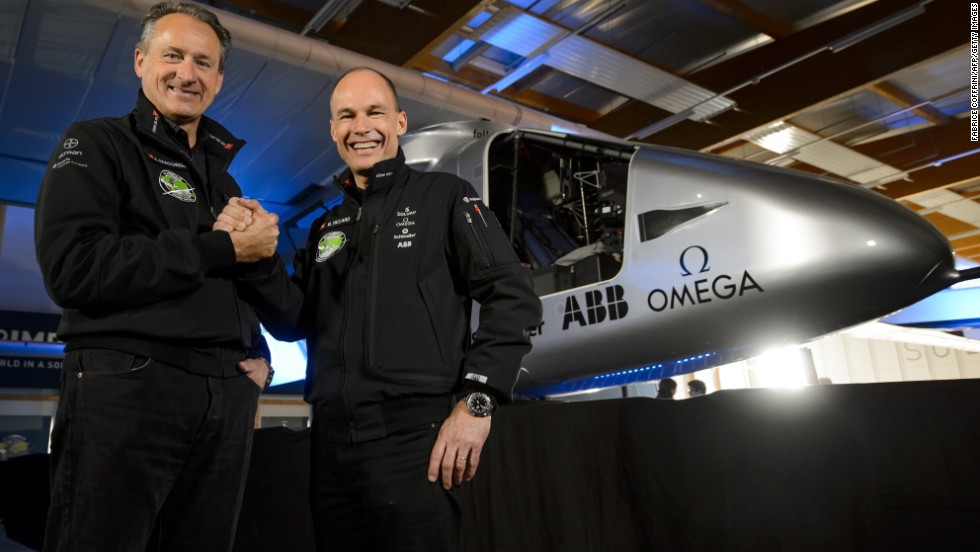


The Solar Impulse 2, piloted by Andre Borschberg of Switzerland, took off at 7:12 am (0412 GMT) from Al-Bateen airport and headed to Muscat, the capital of Oman, where it is expected to land later Monday after the first leg of the journey
The takeoff, which was originally scheduled for Saturday but delayed due to high winds, capped 13 years of research and testing by Borschberg and and fellow Swiss pilot Bertrand Piccard
From Muscat, it will make 12 stops on an epic journey spread over five months, with a total flight time of around 25 days.
It will cross the Arabian Sea to India before heading on to Myanmar, China, Hawaii and New York.
Landings are also earmarked for the midwestern United States and either southern Europe or North Africa, depending on weather conditions.
The longest single leg will see a lone pilot fly non-stop for five days across the Pacific Ocean between Nanjing, China and Hawaii, a distance of 8,500 kilometres (5,270 miles).
Andre Borschberg and Bertrand Piccard will alternate stints flying the plane, which can hold only one person, with the aircraft able to fly on autopilot during rest breaks

The pilots have undergone intensive training in preparation for the trip, including in yoga and self-hypnosis, allowing them to sleep for periods as short as 20 minutes but awaken feeling refreshed.
All this will happen without burning a drop of fuel.
The pilots will be linked to a control centre in Monaco where 65 weathermen, air traffic controllers and engineers will be stationed. A team of 65 support staff will travel with the two pilots
It will travel at 50-100 kilometres per hour, with the slower speeds at night to prevent the batteries from draining too quickly.
The Si2 is the successor to Solar Impulse, a smaller aircraft that notched up a 26-hour flight in 2010, proving its ability to store enough power in the batteries during the day to keep flying at night.
It made its last successful test flight in the United Arab Emirates on March 2, and mission chiefs reported no problems.
It is scheduled to arrive back in Abu Dhabi in July 2015, flown by Piccard.
No comments:
Post a Comment